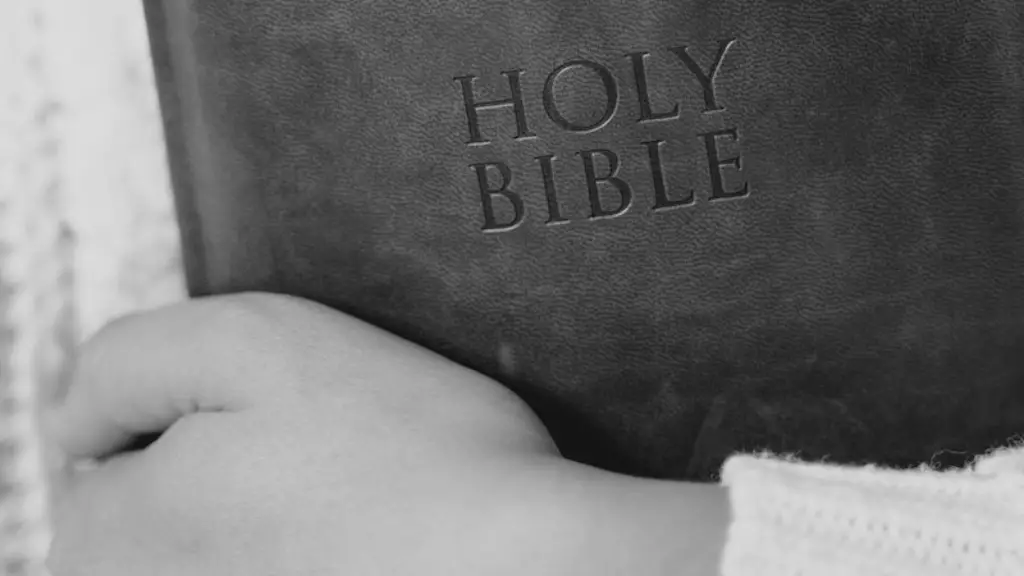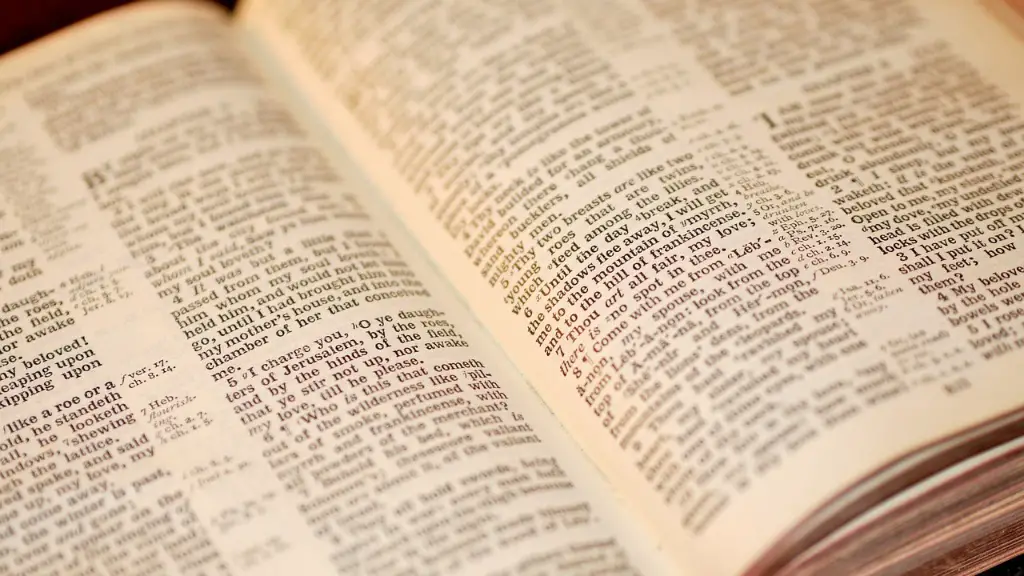Noah’s Wife: Is She Named in the Bible?
Noah and his wife are mentioned frequently in the Bible and play an important role in the Book of Genesis. The Bible is silent on the name of Noah’s wife, however her character is integral to the narrative. It has been suggested that this knowledge would have been important in the oral tradition that is referenced in the Bible. To understand the significance of this absence, it helps to examine the narrative and religious contexts of this biblical figure and her relationship to her husband.
Was Noah’s wife named in the Bible? The Bible is the primary source of information about the flood narratives, and although her name is not mentioned specifically, there are references to her relationship with her husband, her interactions with her sons, and her place in the narrative. According to the Book of Genesis, Noah and his wife had three sons: Shem, Ham, and Japheth. Noah’s wife is mentioned in key moments, such as when she is first introduced in the story: “And Noah had three sons, Shem, Ham, and Japheth, and his wife was with him”.
The accepted biblical interpretation of this passage is that Noah’s wife was unnamed, probably rendering her an anonymous figure in line with the traditional biblical emphasis on male lineage. This may also be reflective of her purported role as a faithful servant of God and a tool of God’s will, implying that she was solely intended to fulfill this purpose. This interpretation is supported by the fact that the Bible does not mention her name even once.
In the religious context, there is evidence that Noah’s wife was symbolic of faithfulness, loyalty, and kindness. She is portrayed as a supportive and obedient wife, and her silent obedience is seen as a lesson in obedience to be emulated by believers. In the Jewish tradition, Noah’s wife is seen as a symbol of faithfulness and loyalty to a higher power, and she is often mentioned in sermons to remind believers that fidelity to God and one’s spouse are intertwined. This is further emphasized by the fact that she stayed with her husband through thick and thin, even when his actions appeared foolish or incomprehensible. This has been interpreted as a sign of her dedication not just to her husband, but also to her faith.
Noah’s wife also symbolizes womanhood in the Bible. Despite her status as an unnamed character, she is still seen as a role model by both men and women. She is credited with remarkable piety and strength of character, representing an ideal of female virtue, which is why she is often the subject of devotional poems and prayers in the religious tradition.
Noah’s Wife: The Role of Marriage in the Bible
In the Bible, marriage is an institution intended for the preservation of life and for the continuation of the human race. As such, Noah’s marriage to his wife is a key factor in the Noah’s Ark story, representing one of the few cases where the Bible offers a positive portrayal of marriage. Despite their partnership being largely faceless due to her lack of name, their marriage is still valued as essential to the survival of the human race. This has significance today, as many contemporary scholars regard their partnership as a model of the ideal marital relationship, emphasizing loyalty, love, and mutual respect.
The importance of marriage between a man and a woman is also highlighted in the Bible. Noah’s Wife is presented as being essential in helping Noah fulfill his mandate of saving humanity, as well as teaching the lessons of faithfulness, loyalty, and piety. In Genesis, Noah’s wife is specifically described as being ‘with’ him; in other words, she is seen as an integral part of his life and mission. This reflects the wider biblical notion of the importance of marriage and family in the eyes of God.
Marriage is regarded as a central biblical institution. In the New Testament, Jesus elevates marriage to a higher level and, in the process, reinforces the importance of the marriage bond and of the institution as a whole. This, in turn, highlights the importance of Noah’s marriage to his wife as symbolizing the basisc of the Judeo-Christian faith. This strengthens the idea that, in biblical terms, marriage is seen as a special relationship that transcends individual identity and is rooted in a connection between two people and God.
Noah’s Wife: the Role of Women
Noah and his wife are also seen as early representatives of power structures in the Bible.Her role as a deferential and obedientwife has been used to reinforce traditional gender roles and to restrict female agency in various contexts. This is apparent in the way she is often portrayed as an extension of her husband, with no individual identityeven though sheis mentioned multiple times.This traditional treatment of women is mirrored in other areas of the Bible,in which wives are depicted as subservient to their husbands.
The role of women in the Bible is an ongoing debate, with a range of interpretations and discussions. At one extreme, some have argued that women have always played an important role in the Bible, with notable female characters, such as Sarah and Ruth,featuring prominently in the narrative. On the other extreme, some theologians have argued that the Bible relegates women to a secondaryposition in comparison to men and does not offer equality in terms of rights and opportunities. Most,however,accept that women should be accorded equal rights and recognition as is given to men, with the Bible’s position on women often seen as indicative of cultural conventions of the time.
Noah’s wife is also a powerful symbol of comfort and compassion. She is a figure of strength and courage, as well as of maternal love, in the face of a worldwide catastrophe. Her passive stance—not being mentioned by name— is contrasted by her being essential to Noah’s mission, representing the feminine qualities of protection, sustenance, and care. This reflects a major theme in biblical literature that mentions the importance of women’s selflessness and loyalty even in the face of the most difficult circumstances.
Noah’s Wife: Factors Affecting Her Identity
The absence of Noah’s wife’s name can be explained by a variety of factors, including cultural norms and religious beliefs. In ancient times, marriages involving prominent figures were often considered to be communal affairs, and thus the names of the spouses were less important. In addition, there may have been cultural reasons for women being mentioned less frequently due to patriarchal customs and a general tendency to privilege males in the traditional household. There was also the possibility that a woman was not mentioned by name due to embarrassment, fear of retribution,or simply out of respect.
The absence of Noah’s wife’s name can also be explained by religious considerations. In the Bible, God is the ultimate authority and His will is often presented as overriding individual human will. This could explain why Noah’s wife is rarely mentioned by name and why her role is largely passive: her identity is meant to be secondary to her obedience to God’s will.
In conclusion, while the Bible is silent on the name of Noah’s wife, her character is integral to the narrative. Her lack of name can be attributed to a variety of factors, including cultural and religious conventions of the time. Despite this, she is still seen as a role model by both men and women, emphasizing loyalty, love, and mutual respect. Furthermore, her status in the Bible upholds the importance of marriage in the faith, as well as the importance of women and their role in binding the household together.
Noah’s Wife: Her Symbolism in Representations of Flood Lore
Noah and his wife are frequently mentioned in Middle Eastern flood accounts. According to Sumerian flood myth, the god Enki sent a flood to wipe out humanity. He warned the faithful Utnapishtim and his wife, who was named Khassikil, of the impending disaster, and commanded them to build a large boat and save themselves and their animals. This pre-biblical account mentions the wife’s name, indicating the notion of marriage and its importance in Middle Eastern culture and tradition.
In the Middle Eastern literature there are also examples of wives being mentioned without a name. “The Epic of Gilgamesh”, considered one of the oldest written works, mentions a wife (Ninsun) who is unnamed. This appears to imply that, in some stories, it was acceptable to refer to a wife without mentioning her name, probably reflecting cultural norms of the time. Similarly, in the Bible, Noah’s wife has never been identified by name, although her faithfulness to God and her husband are key factors in the narrative.
Moreover, representations of Noah’s wife have outlined important lessons for believers. She has been portrayed as an embodiment of faith and loyalty, as well as an example of female strength and courage. In religious studies, her character has often been equated to that of Eve as a symbol of female subservience and motherhood. As such, her lack of name has been seen as indicative of a larger pattern within the narrative which upholds the traditional understanding of a woman’s role in the family and in society.
Noah’s Wife: Significance in Legends and Oral Traditions
The knowledge of Noah’s wife being unnamed has been an important part of the oral tradition since its inception. This was especially true in the ancient world, where oral traditions often outlasted written records. The lack of her name has been seen as reflective of her symbolic role in the narrative, as well as evidence of her relative anonymity in the oral tradition.
The absence of her name has also been interpreted as an important concept in ancient legends. Her lack of name has been seen as a way of emphasizing her role in Noah’s universal mission, while also highlighting her relative obscurity in the context of the wider narrative.
In addition, her lack of name has been connected to a wider pattern of female silencing in the Bible. Scholars have argued that her lack of name is indicative of the traditional patriarchal view of women in Biblical times, and this has also been seen as a reflection of the broader oppressive regime of women in ancient society.
Finally, her lack of name has been connected to a wider understanding of marriage and its importance in the Judeo-Christian faith. Noah’s wife is seen as an example of the loving, mutual relationship between a husband and wife, which is integral to the success of a good marriage. Her lack of name reinforces the Biblical belief that fidelity and loyalty to one’s spouse are essential elements in a successful marriage.





